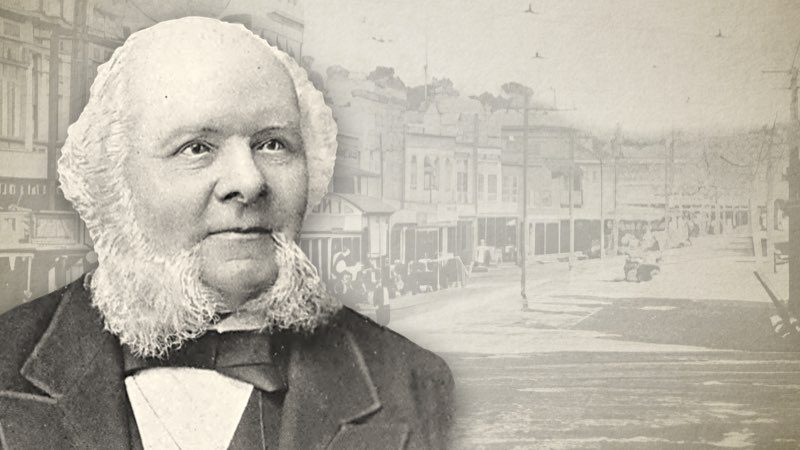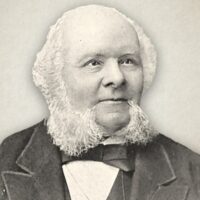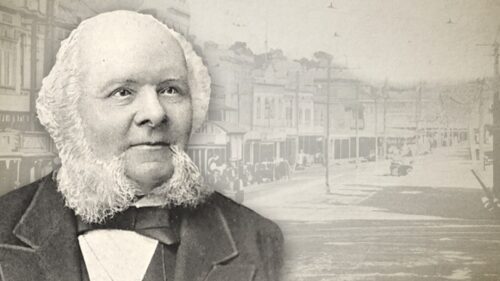
The Spirit Of The World Analyzed
If we might add a codicil to the beautiful Litany of the Church of England, it should be, “From the spirit of the world, good Lord, deliver us.” While the open vanity of the world is prominently labelled “poison.” so that the child of God, living up to the privilege of his high calling, avoids and abhors it, the spirit of the world is a narcotic, enticing in its nature, and, too often, reckoned harmless, but which lulls into a hurtful sleep, producing Jeshurun fatness, but spiritual leanness. “Of the rock that begat thee, thou art unmindful, and hast forgotten God that formed thee.” The spirit of the world is like grapes of the vine of Sodom and of the fields of Gomorrah; their cluster proves to be bitter, however apparently sweet, and their wine is the poison of dragons.
John gives us wholesome advice when he writes, “Beloved, try the spirits, whether they are of God.” That invisible power which leads to an experimental knowledge of, and bowing to, the will of Jehovah, is the spirit to be desired, even the spirit of a sound mind, the spirit of wisdom and understanding, the spirit of grace and supplication, all contrary principles. Satan, “that wicked spirit,” is the author of, and yielding to, their influence, grieves the one true and Holy Spirit of God. We shall do well to stir up this blessed spirit in us, to the quelling every other spirit that lurks within our hearts, so prone to evil; otherwise we may fall under Jehovah’s solemn derision, “Where are their gods, the rock in whom they trusted? let them rise up and help you, and be your protector, for I whet my glittering sword, and mine hand takes hold on judgment.”
Let us turn alchymists, and attempt to analyze the spirit of the world; mark a few of its base principles, and avoid them. The first thing we detect therein is “pride.” Pride is quite the world’s characteristic. “Pride compasseth them about as a chain.’ Humility should mark the Christian, as it marked Christ; and where pride is manifested, the subject possesses the spirit of the world. Pride and pomp are tenants of the worldling, residing within the region of his heart. “Learn of me,” says Christ, our exalted Head, “for I am meek and lowly.” The poor deluded head of the false Church entered Rome on the 12th of April, in a splendid state carriage, overloaded with gold and paintings, and preceded by French and Roman soldiers, nobles, ecclesiastics, and cardinals. The great and glorious Head of the true Church, entered Jerusalem riding on a colt. “And many spread their garments in the way, and others cut down branches off the trees, and strawed them in the way.” Thus saith the Most High God, “I will make the pomp of the strong to cease, and their holy places shall be defiled; destruction cometh, and they seek peace, and there shall be none” (Ezek. 6:24, 25). The crown of pride never becomes a Christian’s head. If you possess it, dear reader, weep in secret places before God, with the poor writer, for the blessed grace of the Holy Spirit, “humility.” We are to become as “little children (not great men), that we may enter the kingdom of heaven.” We have the example of our blessed Saviour, who will revive the spirit of the humble, but who has never promised to exalt the proud.
“The Lord receives his highest praise
From humble minds and hearts sincere;
While all the loud professor says,
Offends the righteous Judge’s ear.”
But in our analysis we detect, also, “covetousness.” Self is the worldling’s god, self-interest the shrine at which he worships. In Jethro’s counsel to Moses, he tells him to provide out of all the people, able men, such as fear God, men of truth, hating covetousness, and place them to be rulers. A feeling of sympathy with our poorer brethren should be cherished, and a helping hand in time of need, secretly extended to them, that while professing priests pass by on the other side, Samaritans, who desire to walk in the footsteps of “the certain Samaritan,” the Lord Jesus Christ, should exercise the spirit of compassion as he did. To covet perishable riches is not Christ-like. The Christian should covet one thing only, which Scripture authorizes him to do to the fullest extent: “Covet earnestly the best gifts;” which must be spiritual gifts from the fulness of Christ.
But, furthermore, in our analysis we turn out another feature, bearing the character of “deceit.” It is a sad thing, that there is such a thing as Christians acting deceitfully, but it is so; grace must be at a low ebb. A false balance is an abomination to the Lord, but a just weight is his delight.” Strict integrity in business as well as in everything should mark the career ofa heaven-born soul; if we are saints, we should live, walk, talk, move, and prove ourselves as such.
But again to our analysis. In applying the test of truth, another destructive principle presents itself—“vain and unbecoming conversation.” We cannot always exclaim, with the apostle Paul, “For our conversation is in heaven, from whence also we look for the Saviour, the Lord Jesus Christ.” There is a promise, “Whoso offereth praise glorifieth me, and to him that ordereth his conversation aright will I show the salvation of God.” What a blessed promise to stimulate us to carefulness in conversation, never to lean to the spirit of the world; and, because in the company of the ungodly, to do as they do, and say as they say.
“My God, what inward grief I feel
When impious men transgress thy will;
I mourn to hear their lips profane
Take thy tremendous name in vain.”
“Who is a wise man, and endued with knowledge among you, let him show out of a good conversation his works with meekness of wisdom.” A yielding to the spirit of the world produces irregular walking, and a stooping gait. Having been set at blessed liberty by the releasing power of the Holy Spirit, we are vessels prepared for the Master’s use, and commit a sin against his mercy to receive anything from the world therein. We are brought out of the land of Egypt, “that we should not be their bond-men, and the Lord our God has broken the bands of our yoke, and made us to go upright.” Whereto we have already attained let us walk by the same blessed and perfect rule.
But we return to our analysis, and develop another constituent—“the manners and customs of men.” Among the many things the Lord spake unto the children of Israel through Moses, not the least important, was the injunction “to commit not any of the abominable customs after the doing of the land of Egypt, wherein they defiled themselves.” It is also written in the New Testament, “Jesus returned in the power of the Spirit unto Galilee, and he came to Nazareth, where he had been brought up; and, as his custom was, he went unto the synagogue on the Sabbath-day.” If we want to know what would be our manner and custom in the wilderness, we shall do well to trace the footsteps of Christ: and before we yield to a custom, ask ourselves, “Was this Jesus’ custom?” Peter, after considering that the earth, and all the works therein, shall be burned up, exclaims, “Seeing, then, that all these things shall be dissolved, what manner of persons ought to be in all holy conversation and godliness;” and the best manner and custom, that recommends itself to Christians, is, “distinction from the world.” They should live on high places, feed on high things, breathe pure air, dwell in the vicinity of heaven, mount up with wings as eagles; learning also another lesson from the king of the air—that when the vulture descends to the earth, and gorges itself upon his victim, immoderation in feeding prevents him from again rising unto the air, and he falls himself an easy prey in the hands of the fowler; so should a Christian “set his affections on things above, and not upon things below,” lest a taste of worldly pleasure should be followed by a relish, a relish lead to a satisfying, and then he have a difficulty in rising above the beggarly elements of this world, and become a prey to the fowler of souls:—not that a blood-bought child of God can be destroyed by the power of Satan. Jesus shed not his blood in vain, but a day’s backsliding may bring years of sorrow and grief of soul. Beloved, it is well to walk uprightly, remembering that Jesus is a rising Sun; keep faith’s gaze stedfastly upon him. At our second birth the Lord broke our yoke, and made us to go upright; by bending to things that are an abomination to him, he is dishonoured. As sons of drudgery and toil get out of crowded cities, to enjoy looking upon the fair face of nature, and breathing pure air, so, in a far higher sense, may we get out of the cities of sin and vanity, and live in the vicinity of heaven. It is there our souls get fanned with love to Jesus, and we long to step within the veil. But the spirit of the world presents another black feature, and perhaps it is the most dangerous principle that the tempter can insinuate into the heart of man—”the spirit of religion.” This is a horrible pit, digged and ingeniously covered over by the false artificer, into which thousands fall and are finally lost; while it is a pitiable fact that not a few, who certainly evince signs of the life of God in the soul, struggle hard to hide it under the bushel of creature dignity and doings; touching, tasting, and handling the unclean things of the world, and cherishing self-will, which is the very foundation of every mock religion, a spirit infused into the heart of man by the god of this world, that he maybe the object of their worship. It is a treacherous nest, suspended on the dead boughs of the Adam nature; if a child of God trusts himself therein, he will assuredly fall, and break his bones. May the Holy Spirit put the sharp thorn of a fiery trial therein, strengthen their wings of faith in Jesus alone, that they may rise upwards to him who sits in the height of heaven. Satan struggles hard to make the heir of glory a captive, and pretty successfully spreads the snare of “the spirit of the world.” It needs the spirit of prayer and supplication in constant exercise, of the pouring out the soul before God for an increase of faith; for faith worketh by love, overcometh the world, purifieth the heart, and resists the tempter.
But time forbids our separating any other principle in this pernicious narcotic—“the spirit of the world.” The Christian needs be a watchman over his own heart, and a vigilant one too. It is a dangerous thing to walk at the edge of precipices, or to go into the neighbourhood of disease. In the vicinity of heaven there are no dangerous paths; in the ways of the world there is a snare at every corner.
May we, dear reader, be kept from the folly of sheltering “pride” in our hearts, remembering that it is a worldly spirit, and that “humility” evidences the child of God. May we be preserved from the spirit of “covetousness;” “as we have, therefore, opportunity, let us do good unto all men, especially unto them that are of the household of faith.”
In our dealings with fellow-men, may we never practice “deceit” in the least iota. The Jews had no dealings with the Samaritans. Christians should have no dealings like worldlings. May we “walk uprightly,” and have the eye of faith firmly fixed upon things above; “as many as walk according to this rule peace be on them, and mercy upon the Israel of God.” May the manners and customs of the ungodly be not our practice, but, with the apostle Paul, may “we bear in our bodies the marks of the Lord Jesus Christ.” May the end of our conversation be “Jesus Christ, the same yesterday, today, and for ever;” and may the spirit of true religion inspire us, for “it is a good thing that the heart be established with grace.” Folly merits the rod; the rod of Jehovah’s wrath will assuredly produce suffering. Jesus’ love remains to the backslider, but grief of soul must be his portion. In experience, as we deal with God, so will he deal with us. To be carnally minded is death and destruction to spiritual advancement. Seeing, then, these things, through the teaching of the Holy Spirit, our earnest prayer is, “From the spirit of the world, dear Lord, deliver us.”
“Thus different powers within us strive,
And grase and sin by turns prevail;
We grieve, rejoice, decline, revive,
And victory hangs in doubtful scale:
But Jesus has his promise past,
That grace shall overcome at last.”
London, June12th, 1850.
George Cowell (1822-1884) was an Independent sovereign grace preacher and author. He also served a short time as editor of the Gospel Magazine.




